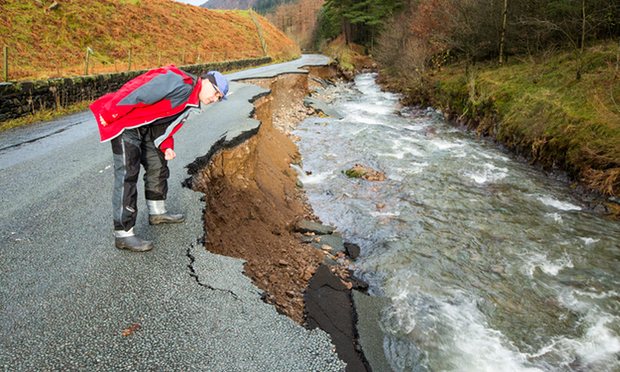UK poorly prepared for climate change impacts, government advisers warn A 2,000 page report by Committee on Climate Change predicts global warming will hit UK with deadly heat waves, more flooding and water shortages.

The UK is poorly prepared for the inevitable impacts of global warming in coming decades, including deadly annual heat waves, water shortages and difficulties in producing food, according the government’s official advisers. Action must be taken now, according to the report from the Committee on Climate Change (CCC) published on Tuesday, with more widespread flooding and new diseases among the risks in most urgent need of addressing. The CCC further warns that climate-stoked wars and migration around the world could have very significant consequences for the UK, through disrupted trade and more military intervention overseas. The 2,000-page report is a comprehensive assessment of the dangers of climate change to the UK, produced over three years by 80 experts and reviewed by many more. The main analysis is based on thetemperature rise expected if the global climate agreement signed in Paris in 2015 is fully delivered and also takes account of plans already in place to cope with impacts. The worst case scenarios in the CCC report – if action to tackle climate change completely fails – foresees searing heatwaves reaching temperatures of 48C in London and the high-30s across the nation. “We are not sufficiently prepared and we need to do more now, even for the [Paris deal] scenario of 2.7C of warming,” said Lord John Krebs, chair of the CCC’s adaptation sub-committee. “Many impacts are affecting us now, as climate change is already happening.” “What we now think of as an extremely hot summer, where people are dying of heat stress and it is extremely uncomfortable in homes, hospitals and much of transport, that is likely to be a typical summer by the middle of the century and would be a cool summer in the 2080s,” he said. Krebs said critical facilities, such as hospitals and care homes, are particularly at risk: “Many are not designed to be resilient in terms of overheating.” Many are also in already flood prone areas, the report noted, with the risk of flooding set to rise further.

